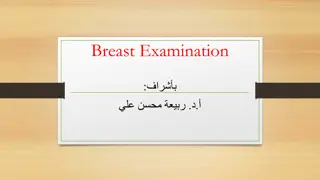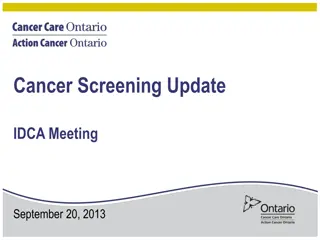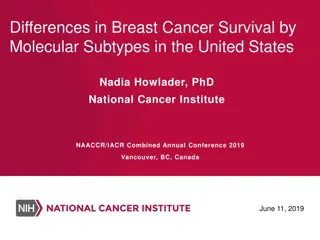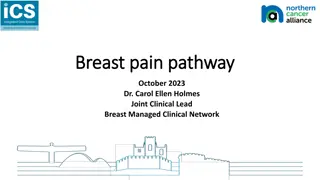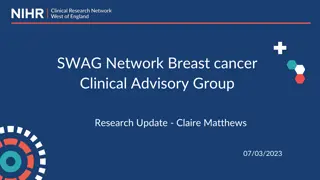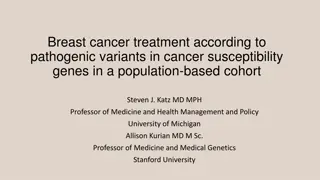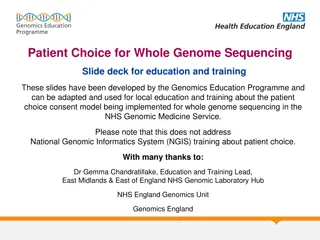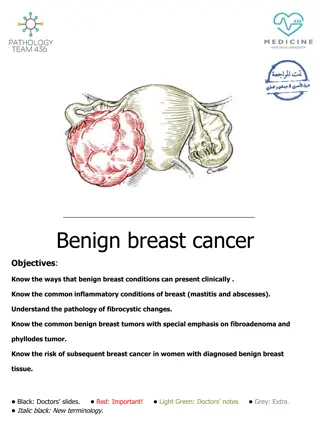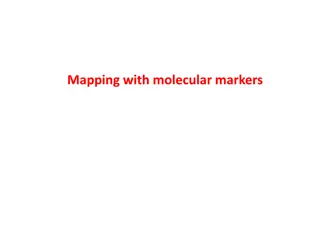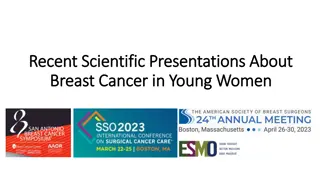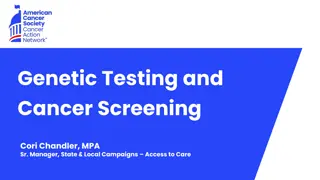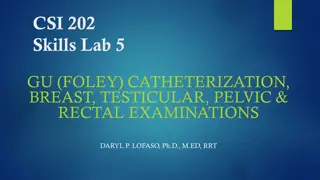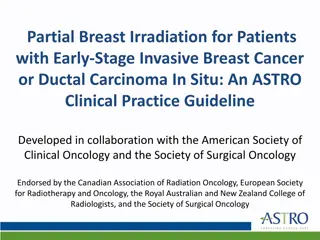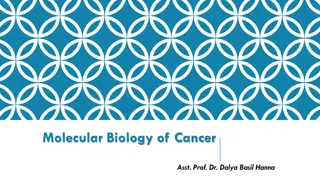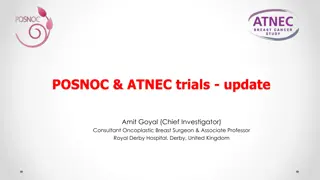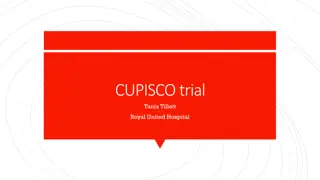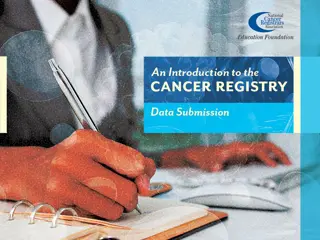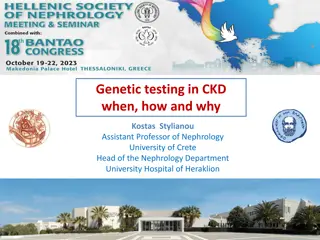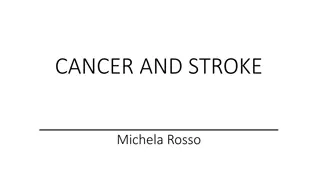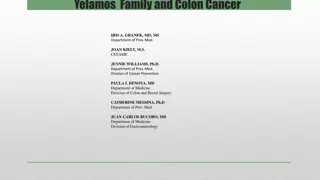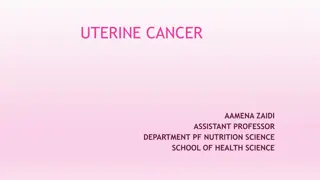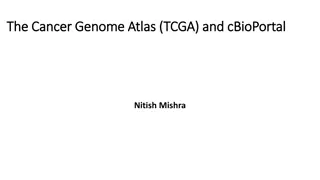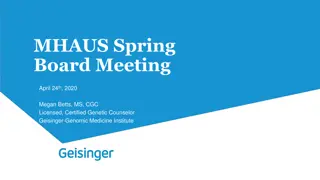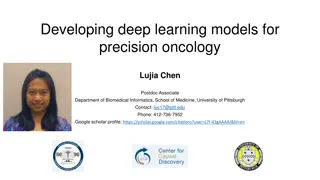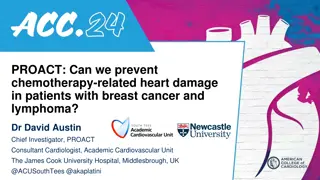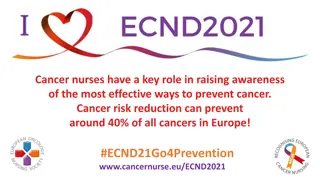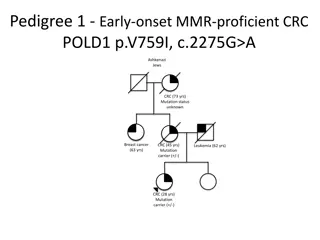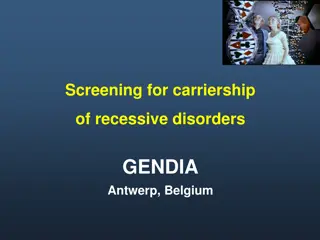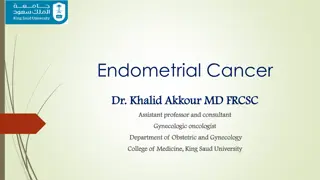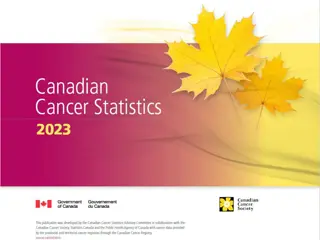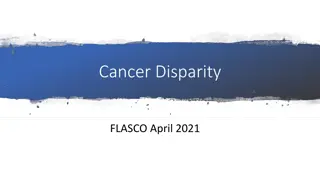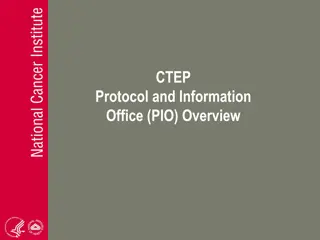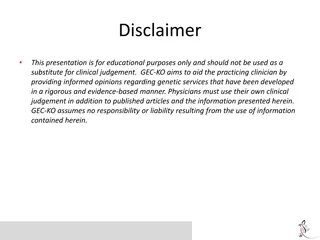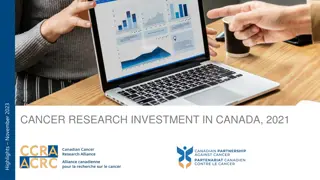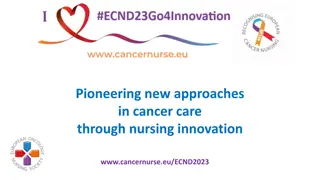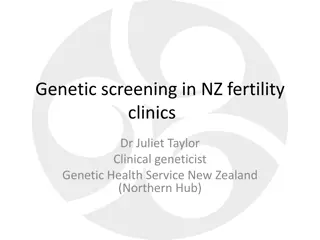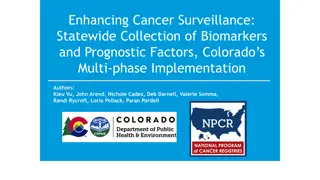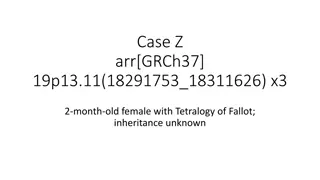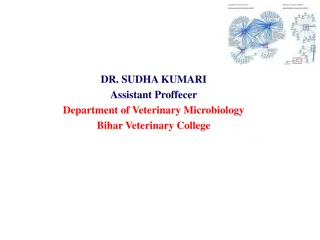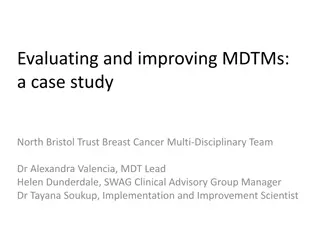Understanding Challenges and Gaps in Genetic and Genomic Testing for Breast Cancer Risk
The report highlights current challenges and identified gaps in genetic and genomic testing for breast cancer risk assessment. The workgroup aims to catalog existing materials, address terminology confusion, and improve public and clinician education. Challenges include complex terminology, uncertain test impact, insurance coverage, and outdated prediction programs. Identified gaps include insufficient educational materials, lack of risk comparison platforms, and incomplete gene understanding.
Download Presentation

Please find below an Image/Link to download the presentation.
The content on the website is provided AS IS for your information and personal use only. It may not be sold, licensed, or shared on other websites without obtaining consent from the author. Download presentation by click this link. If you encounter any issues during the download, it is possible that the publisher has removed the file from their server.
E N D
Presentation Transcript
GENETICS & GENOMICS WORKGROUP REPORT CDC- ACBCYW February 2020
WORKGROUP MEMBERS Co-Chairs Shubhada Dhage, MD, FACS and Joyce Turner, MS, CGC Susan Brown, MS, RN Sue Friedman, DVM Sadie Hudson, PhD, RN, WHNP, FAANP
WORKGROUP CHARGE Provide the committee with an overview of utilization of genetic and genomic testing in interpreting risk outcomes for young women facing breast cancer
METHODS Catalog existing materials/tests for providers and patients on genetics, genomics, and pathologic risk factors for breast cancer Identify challenges and deficiencies in adequately informing the public and clinicians about genetic and genomic testing options, especially given the highly evolving field and complex information Inform and advise the ACBCYW on prioritizing and supporting ongoing program efforts
CURRENT CHALLENGES Terminology is confusing Large number of tests- knowing which test to use when & how to interpret results can be challenging to untrained professionals Uncertain impact of various genetic and genomic tests Health insurance coverage for testing Consumer genetics-testing kits Different types of risk and hard to synthesize the individual risks to provide a total risk estimate; prediction programs outdated
IDENTIFIED GAPS Insufficient educational material on genetics and genomics Lack of a comprehensive platform to compare the different types of risks (genetics, genomics, epigenetic, environmental, pathologic) and tests to better assess risk Incomplete understanding of genes tested, interpretation of results, and their impact on risk and management
RNA Analysis Results from germline genetic testing can include a positive result, negative result, or variant of unclear significance (VUS) VUS means that at the current time there is insufficient evidence to classify a gene change as positive or negative RNA analysis is a type of functional analysis of a gene - Decreases the the number of VUS - Identifies mutations that traditional testing can t identify
Ambry Genetics Website- Karam R. et al. RNA Genetic Testing in Hereditary Cancer Improves Variant Classification and Patient Management. ACMG 2019.
RECOMMENDATIONS Providers need to have sufficient training in genetics and genomics in order to navigate the array of testing options and select appropriate testing Support studies to better understand breast cancer genes & associated mutations Support studies that help guide medical management that is gene specific Support studies to better understand additive risks- genetics+environment+pathologic risk factors Support efforts to adopt consistent, plain language terms to describe tumor-based and germline testing Synthesize EVB information in central location and develop an educational platform on genetics and genomics for providers and the public



